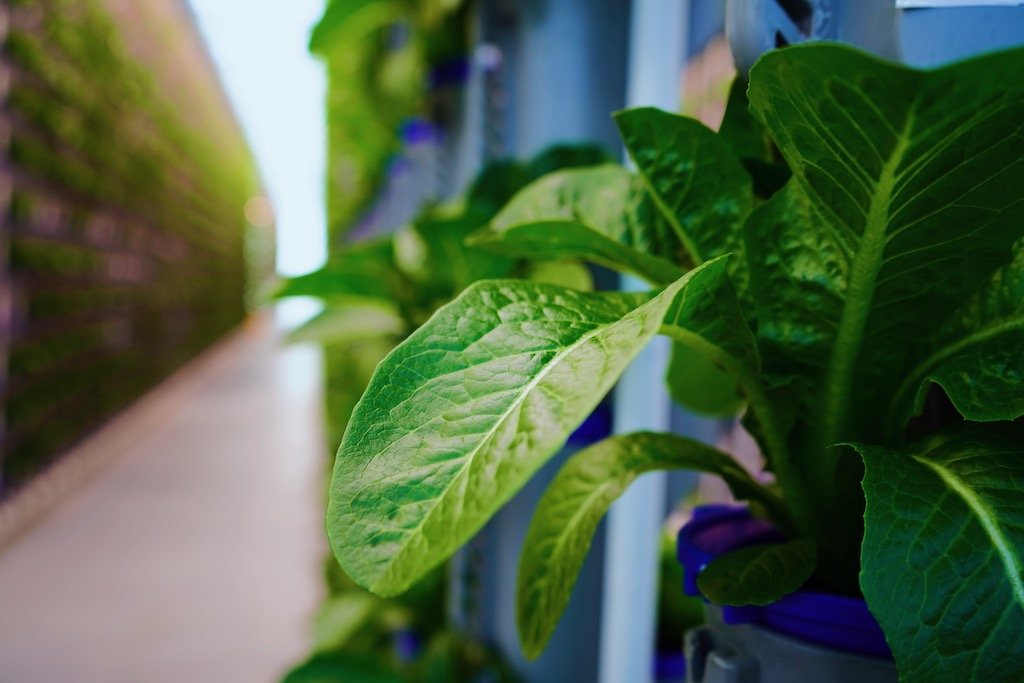What Is Agribusiness?
Agribusiness is the business side of farming. It includes everything from growing crops to processing food. Like all other businesses, it has changed over time. New technologies help farmers produce more food while protecting the environment.
As the global population grows, the need for food increases. This growth makes agribusiness more important than ever. Below, we'll explain agribusiness, its main parts, and how it's changing.
Key Components of Agribusiness
Agribusiness includes several key components that work together to create our food supply. The first component is production, which involves growing crops and raising animals. Farmers and ranchers use various techniques to ensure they produce enough food.
The next component is processing. After farmers harvest crops, they process them into products for people to buy and eat. This element involves cleaning, packaging, or turning raw materials into the food we see in stores.
Finally, distribution gets products from farms and processing plants to stores and markets. During this step, farmers transport food and manage supply chains. A strong distribution process ensures that products arrive fresh.
Examples of Agribusinesses
Agribusiness includes various businesses that help get food from farms to our tables. Here are some key examples:
Farm Machinery Manufacturers make the machines that farmers use. These include familiar tools like tractors, plows, and harvesters. They may also include advanced technologies like sensors and robotics. These tools make it easier and faster for farmers to plant, grow, and harvest crops.
Seed and Agrochemical Manufacturers produce seeds and the chemicals that help plants grow. They may develop specific seeds to resist pests or survive drought. Fertilizers and pesticides help crops grow better and produce more food.
Farms are at the heart of agribusiness. They grow the food that feeds us. Some farms use traditional methods. Others use modern techniques like hydroponic greenhouses to grow crops more efficiently.
Food Processing Companies enter the food chain after farmers harvest the crops. They process these crops before they reach the stores. These companies turn raw products like wheat and milk into goods like flour and cheese. This step makes the food safe and ready for us to eat.
Agritourism Companies allow people to visit farms, pick fruit, or take tours. Agritourism helps connect people with where their food comes from. It also supports local farmers and artisan food producers.
Biofuel Producers turn crops like corn and soybeans into fuel. Biofuels are a cleaner option than fossil fuels and help reduce pollution. This key step leads to more sustainable energy.
Advancements and Technologies in Agribusiness
Agribusiness has seen many technological advancements. These improvements help farmers grow more food, use resources wisely, and improve efficiency. Here are some key technologies shaping the future of agribusiness:
Vertical Farming involves growing crops in stacked layers, often in indoor environments. It uses less land and water than traditional farming and allows for year-round production. It’s especially useful in urban areas with limited space. Some may question vertical farming's sustainability because of its vast banks of grow lights. Yet many vertical farms are profitable and more sustainable than traditional farms.
Biotechnology uses scientific techniques to improve plants and animals. For example, genetic modification can create hardier crops. These GMOs are more resistant to pests and diseases that grow faster. This technology helps increase food production and reduces the need for chemical treatments.
Precision Agriculture involves using technology to track and manage crops with great accuracy. Tools like GPS and sensors help farmers know exactly where to water, fertilize, or treat crops. This data reduces waste and makes farming more efficient.
Artificial Intelligence and Machine Learning in farming analyze data and make predictions. For example, AI can help farmers decide the best time to plant or harvest based on weather patterns. It can also determine the precise amount of water needed based on current conditions.
Satellite and Drone Imaging provides farmers with detailed images of their fields. These images help track crop health, check for pests, and plan for the best land use. Farmers can also use drones to apply treatments to crops more precisely.
Blockchain Technology enhances the traceability and transparency of food production. It allows farmers to record and verify each step of the food supply chain. Such a record helps ensure the safety and quality of food products.
The Importance of Agribusiness
Agribusiness is important for several reasons that affect both people and the planet:
Economic Contribution: Agribusiness is a big part of the economy. It provides jobs for many, from those who work on farms to those in food processing and distribution. The money made from agribusiness helps support local communities and boosts national economies.
Food Security: Agribusiness helps ensure there is enough food to feed everyone. By improving how we produce food, agribusiness helps meet the needs of a growing population. It can help reduce hunger and ensure people have access to healthy food.
Innovation and Technology: Agribusiness leads to new technologies that make farming more efficient. These innovations help farmers grow more food with fewer resources, which is essential for meeting future food demands.
Environmental Stewardship: Agribusiness can help protect the environment by using sustainable farming practices. These methods include saving water, reducing energy use, and lessening the need for chemicals. Doing so preserves natural resources and reduces agriculture's environmental impact.
Challenges in Agribusiness
Agribusiness faces several challenges that can impact its success and sustainability. Here are some of the main challenges:
Climate Change is one of the biggest challenges for agribusiness. It has brought changes in weather, frequent extreme events, and rising temperatures, which can affect crop yields and livestock production. Farmers and agribusinesses must find ways to adapt to these changes. They may choose more resilient crops or adjust farming practices.
Technological Adoption can greatly benefit agribusiness, but adopting these technologies can be challenging. Not all farmers can access the latest tools or the training to use them effectively. This disparity can create a gap between those with new technologies and those without.
Market Volatility also affects agribusiness. Prices for crops and livestock can fluctuate widely. Supply and demand, trade policies, and global economic conditions are major factors in these changes. Market volatility challenges farmers and agribusinesses to plan and maintain stable incomes.
Frequently Asked Questions
What Are the Three Main Categories of Agribusiness?
Agribusiness is divided into three main categories: agriculture, livestock, and forestry.
Agriculture includes growing crops such as grains, fruits, and vegetables. It covers all activities related to planting, growing, and harvesting these crops.
Livestock farming involves raising animals like cows, chickens, and pigs. These animals are raised to provide meat, milk, eggs, and other products. Livestock also includes activities related to animal care, feeding, and breeding.
Forestry is the management of forests for the production of goods. These goods may be wood, paper, and other products. This category also includes forest conservation and sustainable timber management.
How Big Is the Agribusiness Industry?
The agribusiness industry is one of the world’s largest and most important sectors. It encompasses everything from farming and food production to processing, distribution, and retail. The industry generates trillions of dollars globally each year. It also provides jobs for millions of people. Agribusiness is essential for feeding the global population. It also drives economic growth in many countries.
Partnering With Eden Green Technology
At Eden Green Technology, we are committed to revolutionizing food production and making the food supply more sustainable and efficient. Partnering with us puts you at the center of this exciting transformation in agriculture. Are you looking for opportunity zone investing or a sustainable commercial food supply? Either way, we want to hear from you.
Our commercial hydroponic systems are leading the charge in providing fresh, healthy food. At the same time, we focus on maintaining a minimal environmental footprint. We invite you to join us as we work to create a more sustainable future for farming.
Interested in learning more about sustainable investments? Ready to take the next step to a fresh, local food supplier?








Want to grow your own fresh, healthy veggies for your store or restaurant? Indoor growing systems will save space and produce great results.